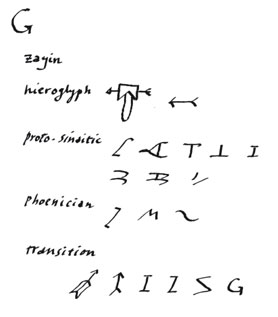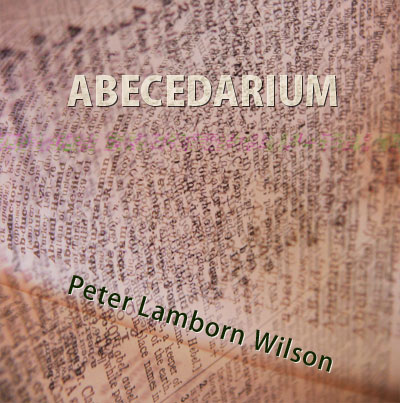"...the Imagination (or love, or sympathy, or any other sentiment) induces knowledge, and knowledge of an 'object' which is proper to it..."
Henry Corbin (1903-1978) was a scholar, philosopher and theologian. He was a champion of the transformative power of the Imagination and of the transcendent reality of the individual in a world threatened by totalitarianisms of all kinds. One of the 20th century’s most prolific scholars of Islamic mysticism, Corbin was Professor of Islam & Islamic Philosophy at the Sorbonne in Paris and at the University of Teheran. He was a major figure at the Eranos Conferences in Switzerland. He introduced the concept of the mundus imaginalis into contemporary thought. His work has provided a foundation for archetypal psychology as developed by James Hillman and influenced countless poets and artists worldwide. But Corbin’s central project was to provide a framework for understanding the unity of the religions of the Book: Judaism, Christianity and Islam. His great work Alone with the Alone: Creative Imagination in the Sufism of Ibn ‘Arabi is a classic initiatory text of visionary spirituality that transcends the tragic divisions among the three great monotheisms. Corbin’s life was devoted to the struggle to free the religious imagination from fundamentalisms of every kind. His work marks a watershed in our understanding of the religions of the West and makes a profound contribution to the study of the place of the imagination in human life.Search The Legacy of Henry Corbin: Over 800 Posts
Saturday, May 1, 2010
A New Book by Peter Lamborn Wilson
Peter Lamborn Wilson knows Henry Corbin's work from the inside out. (See his wikipedia entry - especially for the bibliography which has a fair number of entries of considerable interest). Don't miss his reviews of Corbin's Man of Light and Temple and Contemplation. This new book, which I have not (yet) seen, seems worthy of note. (I would point readers to certain pages in David Abram's The Spell of the Sensuous, and also to some of Hamaan's writing for context).
Abecedarium - Alphapoetic meditation on the etymology of the English alphabet with diagrams by the author.
Peter Lamborn Wilson’s quick wit and poetic intelligence add immeasurably to the small store of recent art and poetry (Mac Low, Berman, Silliman, Bok, Johns, to name a few) celebrating or utilitizng the lore and wonder of alphabetic writing. As with Mac Low and Berman in particular, Wilson’s focus is on the Hebrew alphabet, coterminous with the Phoenician at the alphabet’s beginnings: a meditation, visual and verbal, on the shape, form, history, and praxis of the letters and signs in question. The resultant Abecedarium, reads like poetry or what we now take poetry to be: short and tight prose versets that bring to life a world of lore and tradition, and by so doing, make it new. A book to read again and again, and a lettristic delight.
—Jerome Rothenberg
 This remarkable lexicon explores tensions between life in a world before the State and the emergence of the alphabet, or the origin of the world as we purport to know it. Amidst the reign and terror of nonsense, in a land where ‘everything is believable and nothing knowable,’ Peter Lamborn Wilson—at the peak of his extraordinary power—tutors us in the old ways in an offering of both knowledge and wisdom.
This remarkable lexicon explores tensions between life in a world before the State and the emergence of the alphabet, or the origin of the world as we purport to know it. Amidst the reign and terror of nonsense, in a land where ‘everything is believable and nothing knowable,’ Peter Lamborn Wilson—at the peak of his extraordinary power—tutors us in the old ways in an offering of both knowledge and wisdom.
—Ammiel Alcalay
Abecedarium - Alphapoetic meditation on the etymology of the English alphabet with diagrams by the author.
Peter Lamborn Wilson’s quick wit and poetic intelligence add immeasurably to the small store of recent art and poetry (Mac Low, Berman, Silliman, Bok, Johns, to name a few) celebrating or utilitizng the lore and wonder of alphabetic writing. As with Mac Low and Berman in particular, Wilson’s focus is on the Hebrew alphabet, coterminous with the Phoenician at the alphabet’s beginnings: a meditation, visual and verbal, on the shape, form, history, and praxis of the letters and signs in question. The resultant Abecedarium, reads like poetry or what we now take poetry to be: short and tight prose versets that bring to life a world of lore and tradition, and by so doing, make it new. A book to read again and again, and a lettristic delight.
—Jerome Rothenberg
 This remarkable lexicon explores tensions between life in a world before the State and the emergence of the alphabet, or the origin of the world as we purport to know it. Amidst the reign and terror of nonsense, in a land where ‘everything is believable and nothing knowable,’ Peter Lamborn Wilson—at the peak of his extraordinary power—tutors us in the old ways in an offering of both knowledge and wisdom.
This remarkable lexicon explores tensions between life in a world before the State and the emergence of the alphabet, or the origin of the world as we purport to know it. Amidst the reign and terror of nonsense, in a land where ‘everything is believable and nothing knowable,’ Peter Lamborn Wilson—at the peak of his extraordinary power—tutors us in the old ways in an offering of both knowledge and wisdom.—Ammiel Alcalay
Subscribe to:
Post Comments (Atom)









No comments:
Post a Comment